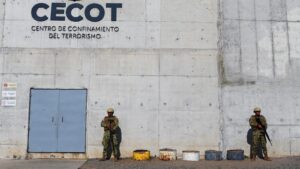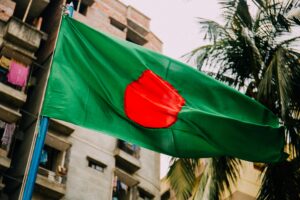We celebrate the recent ruling of the Inter-American Court of Human Rights in the Perez Lucas et al. v. Guatemala case, which was litigated by Consejo de Comunidades Étnicas Runujel Junam (CERJ) and RFK Human Rights. This key decision addresses the enforced disappearance of four human rights defenders Agapito Pérez Lucas, Nicolás Mateo, Macario Pú Chivalán, and Luis Ruiz Luis, in 1989 during the country’s internal armed conflict. It also addresses the enduring impunity surrounding the facts of the case and its impact on the defenders’ families and society.
The victims were forcibly disappeared by State agents in the late 1980s due to their active role in defending human rights as CERJ members. Despite repeated pleas by their families, the Guatemalan government failed to investigate or provide information about their whereabouts. A formal investigation launched in 2006 was riddled with delays and a lack of cooperation from key State institutions, especially the Ministry of Defense.
“Today, we celebrate a monumental decision, a triumph for the unwavering belief in justice, accountability, and the dignity of every individual. Our deepest gratitude goes to Amilcar Mendez, CERJ founder, and the victims’ families, whose determination in these last 35 years demonstrates the power of persistence and resilience,” said Kerry Kennedy, president of RFK Human Rights. “We will continue to champion human rights and strive for a world where such violations are intolerable,” she added.
The Inter-American Court concluded that the Guatemalan government was responsible for forcibly disappearing the four defenders in direct retaliation for their human rights work, failing to search for the defenders’ whereabouts, and failing to investigate the facts. Through its acts and omissions, the State of Guatemala violated several rights recognized in the American Convention on Human Rights and the Inter-American Convention on Enforced Disappearance, including the right to life, personal integrity, and personal liberty, access to justice and access to information, as well as the rights to freedom of association, to family life and freedom of movement. Notably, the Court also found that Guatemala violated the right to truth and the right to defend human rights.
As a result, the Court ordered several reparation measures in favor of the victims, including ordering the State to thoroughly, impartially, and efficiently investigate the enforced disappearances and to identify and hold accountable the perpetrators, as well as to develop and implement a search plan to locate the victims’ whereabouts.
Additionally, the Court has ordered the State of Guatemala to implement a series of non-repetition measures, including:
- To establish a public policy to declassify and preserve archives related to the internal armed conflict;
- To create and implement a national mechanism to search for the forcibly disappeared in Guatemala;
- To strengthen the national human rights ombudsperson office; and
- To establish a national protection policy for human rights defenders.
“This ruling is very important and impacts the Guatemalan justice system, which is currently eroding. It is also a strong message to the military elite that in the current context has benefited from impunity for crimes against humanity committed by the military during the armed conflict in Guatemala,” said Amilcar Méndez Urizar, founder of CERJ.
With the founder of CERJ and Guatemalan civil society, RFK Human Rights will continue working toward implementing this historical ruling and ensuring that impunity does not prevail.



